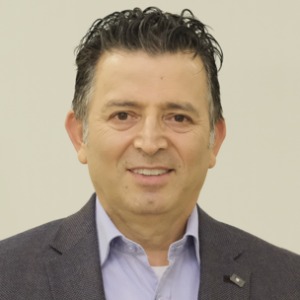Abstract:
Background: Thoracic blockages not only present as mechanical movement restrictions but also influence a wide range of physiological processes due to their close connection with the autonomic nervous system, particularly the sympathetic nervous system. Persistent sympathetic activation can lead to autonomic dysfunctions, organ disorders, hormonal imbalances, metabolic diseases, myofascial pain syndromes, and circulatory disturbances.
Methods: This study analyzes the pathophysiological mechanisms of thoracic blockages and their impact on the spinal and autonomic nervous systems. The primary focus is on the interplay between sympathetic hyperactivity, impaired microcirculation, and the formation of myofascial trigger points.
Results: Chronic thoracic blockages can induce reflexive hypertonia of the paravertebral musculature, leading to pain, organ dysfunction, and central nervous system sensitization. This exacerbates muscular imbalances and contributes to the chronicity of pain syndromes.
Therapy: Combining neural therapy and manual medicine offers an integrative approach to restoring disrupted physiological balance. While neural therapy targets sympathetic dysregulation and modulates interference fields, manual medicine helps restore mobility and reduce muscular dysfunction.
Conclusion: Effective treatment of thoracic blockages requires an interdisciplinary approach that addresses both neurovegetative and mechanical aspects. The combination of neural therapy and manual medicine is an effective method for sustainably regulating structural and functional imbalances while reducing healthcare costs.
Biography:
Prof. Dr. Dr. med. Hüseyin Nazlikul, born on May 10, 1963, holds German citizenship and is proficient in German, Turkish, and English. He earned his Doctor of Medicine and PhD in Biophysics from Aydin Adnan Menderes University, Turkey, in 2023. He was appointed Professor of Physical Medicine and Rehabilitation at the University of Hamburg in 2010. He previously completed his Doctor of Medicine at Charité – Universitätsmedizin Berlin, Faculty of Medicine, where he submitted a dissertation on Neural Therapy, Natural Healing Methods, Regulatory Procedures, and Focus Phenomena, graduating Dr. med., cum laude on February 12, 2010. He is a certified Specialist in Physical and Rehabilitative Medicine (PRM), recognized by the State Medical Association of Hessen on February 27, 2002, in Frankfurt am Main. His additional qualifications include Manual Medicine, Regulatory Medicine, Neural Therapy, and Algology. Professionally, Prof. Nazlikul serves as a Professor of Physical Medicine and Rehabilitation and has held several leadership roles: President of the International Federation for Neural Therapy (IFMANT) since 2019, President of the Turkish Neural Therapy Society since 2004, and President of the Turkish Manual Medicine–Pain Regulation Association since 2017. He also directs the Naturel Health Center in Istanbul, a role he has held since 2004. His scholarly contributions include over 70 scientific publications in international peer-reviewed journals and authorship of standard reference books on Neural Therapy, Regulatory Medicine, and Integrative Medicine. He has received numerous honorary memberships and awards recognizing his contributions to Neural Therapy and Complementary Medicine across Germany, Austria, Switzerland, and Spain. His research focuses on Neural Therapy, Regulatory Medicine, Chronic Pain Management, Mitochondrial Medicine, and Functional Disorders of the Musculoskeletal System.



